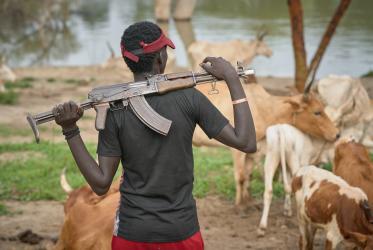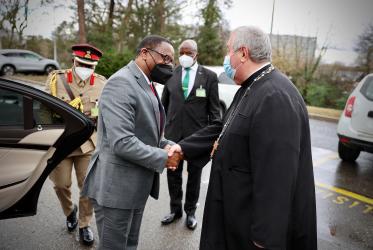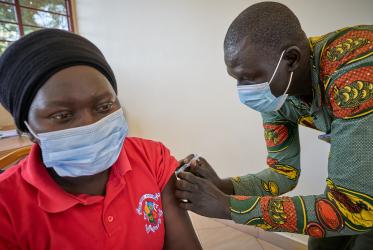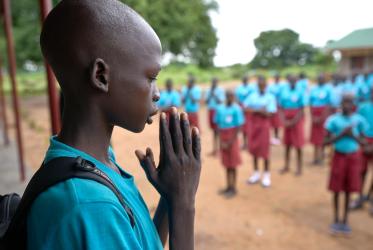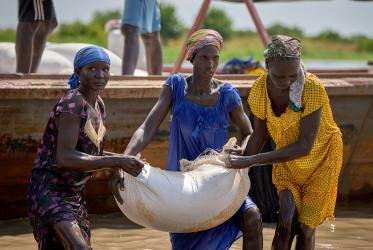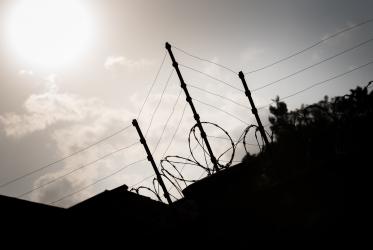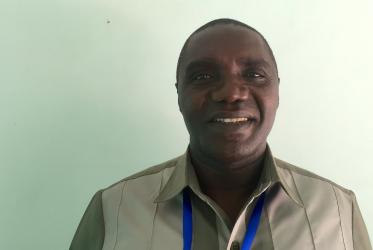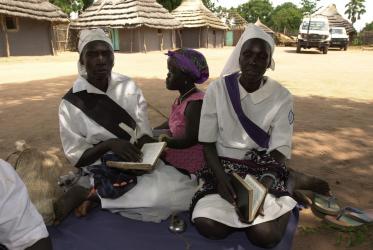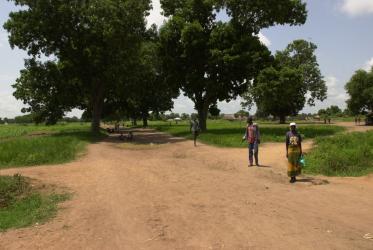Displaying 21 - 40 of 163
President of the Republic of Malawi visits WCC with hope for Africa
24 February 2022
South Sudan ecumenical leader: Don’t give up on war-torn country
19 January 2022
Calls grow globally for peace and accountability in South Sudan
24 September 2021
South Sudanese Churches shelter populations displaced by floods
23 September 2021
WCC expresses concerns over reinstatement of death penalty in Malawi
07 September 2021
COVID-19 in conflict zones: “a crisis within another crisis”
27 November 2020
